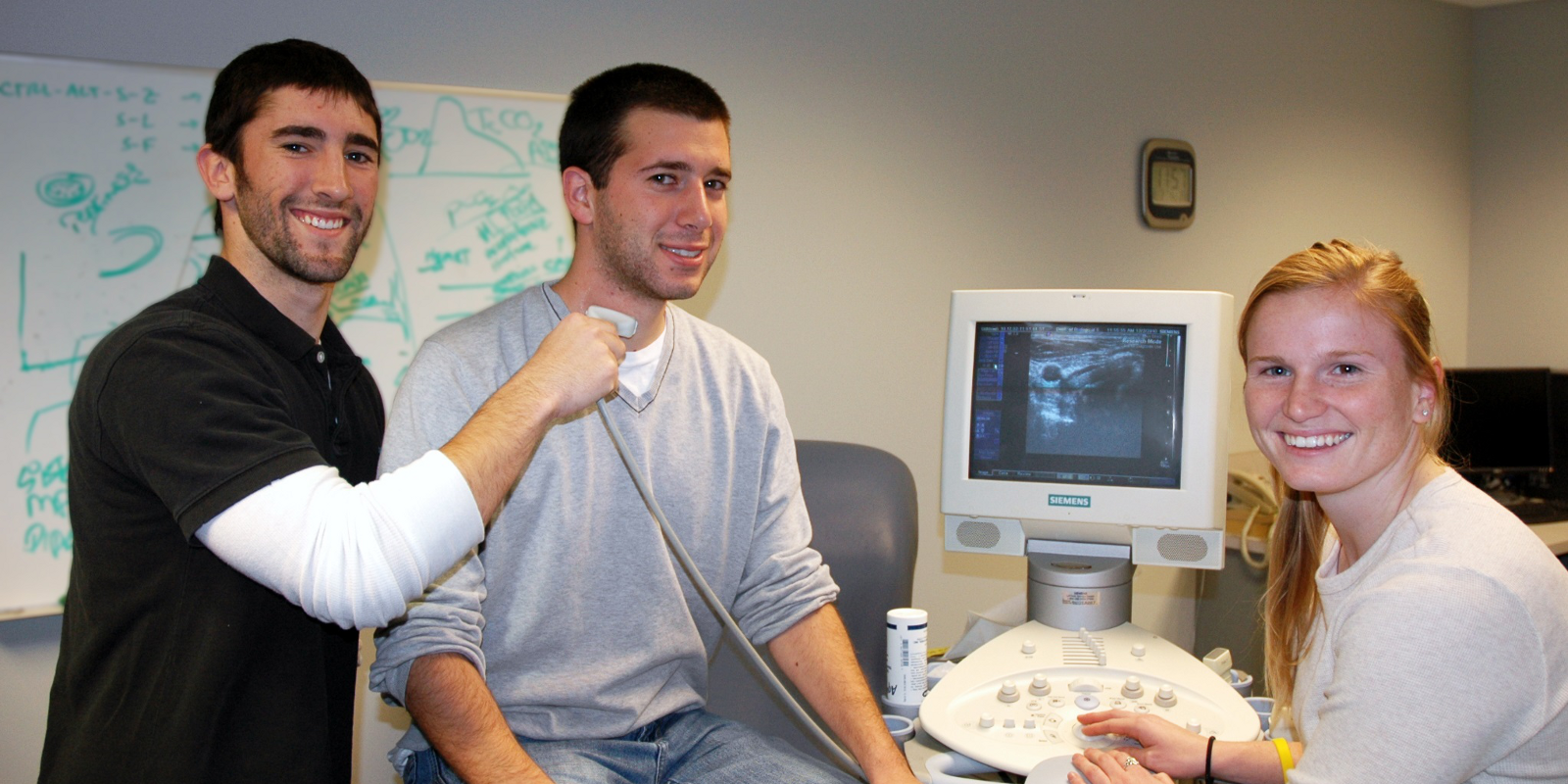Biomedical Engineering Emphasis
Biomedical Engineering
The Biomedical Engineering emphasis in the Biological Systems Engineering major connects the fields of engineering and medicine. Biomedical engineering is a rapidly expanding field of study encompassing a wide variety of subject matter and research. For example, the study of medical imaging, using ultrasound and MRI, is yielding new discoveries to help doctors and patients. Surgical tool design, tissue engineering, prosthetic design, and rehabilitation engineering are just a few of the emerging fields in this specialty. Relevant issues: bioimaging, biological sensors, bioelectricity, biomechanics, cardiovascular mechanics, tissue engineering, biotechnology/bioinformatics, medical imaging.
Students can develop irrigation and drainage systems as well as apply water resources engineering tools to current water management challenges. There are many applications for this career field, and if you want to play a role in improving and protecting our food production and natural resources, this is the field of study for you!
Recommended Classes
Introduction to research areas and applications in biomedical engineering. Bioelectricity, biosensors, biomechanics, cardiovascular mechanics, tissue engineering, biotechnology, medical imaging.
Mathematical modeling of biophysical systems. Learn how to interpret biological signals by understanding continuous and discrete signals, system classification, convolution, Fourier analysis, and basic filtering concepts..
Introduction to all types of biomaterials, metals, ceramics, polymers, and natural materials. Characterization of biomaterials, mechanical and physical properties, cell-biomaterials interactions, degradation, and host reaction to biomaterials. FDA testing and applications of biomaterials, implants, tissue engineering scaffolds, artificial organs, drug delivery, and adhesives.
Learn the underlying physics, instrumentation, and signal analysis of biomedical and biological imaging modalities. MRI, X-ray, CT, ultrasound, nuclear medicine, and the human visual system. Energy-tissue interactions. Resolution, point spread function, contrast, diffraction, comparisons. Information content in images for biological systems.
Introduction to engineering biological substitutes that can restore, maintain or improve organ function in therapy of diseases. Engineering methods and principles to design tissues and organs, cell and tissue biology, tissue growth and development, biomaterial scaffolds, growth factor and drug delivery, scaffold-cell interactions, and bioreactors.
For more information, visit the Biomedical Engineering section of the Undergraduate Catalog.
After Graduation
After completing a B.S. in Biological Systems Engineering with an emphasis in Biomedical Engineering, students go on to have fulfilling careers in a variety of directions. Many graduates find work with companies and organizations that provide consulting services for cities and the government. Other students will be hired by industrial companies to help design solutions for limiting pollution production and optimizing water use. There are also students who choose to continue with their education and pursue advanced degrees.
Visit
See how you fit at Nebraska.Emphasis Areas

Biomedical Engineering
Medical Imaging, surgical tool design, tissue engineering, prosthetic design, and rehabilitation engineering are just a few of the emerging fields in this specialty.

Ecological and Environmental Engineering
Learn about nonpoint source pollution, restoring streams, lakes, and wetlands, and how ecological engineering plays a role in sustaining our environment.

Food and Bioprocess Engineering
Discover new possibilities for bioproducts and bioenergy: from biodiesel and ethanol to new uses for grain by-products as well as improving food safety and quality.
